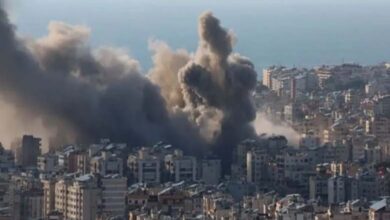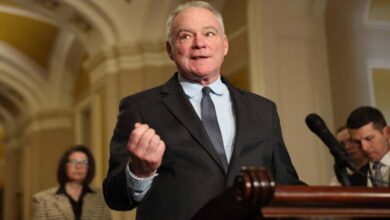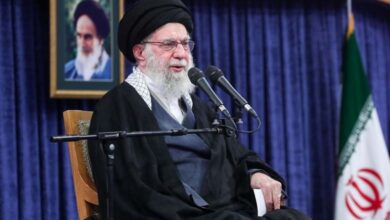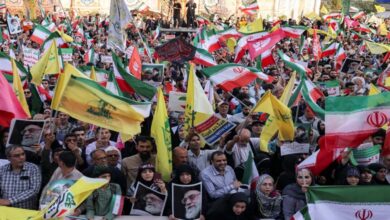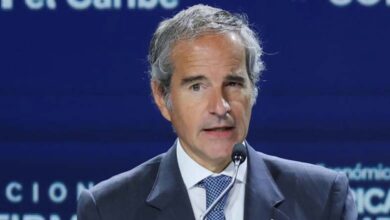Pezeshkian Warns Trump against War with Iran
The Iranian president asserts that his country is not seeking to build a nuclear bomb, accusing the West of failing to uphold its promises regarding the nuclear agreement.
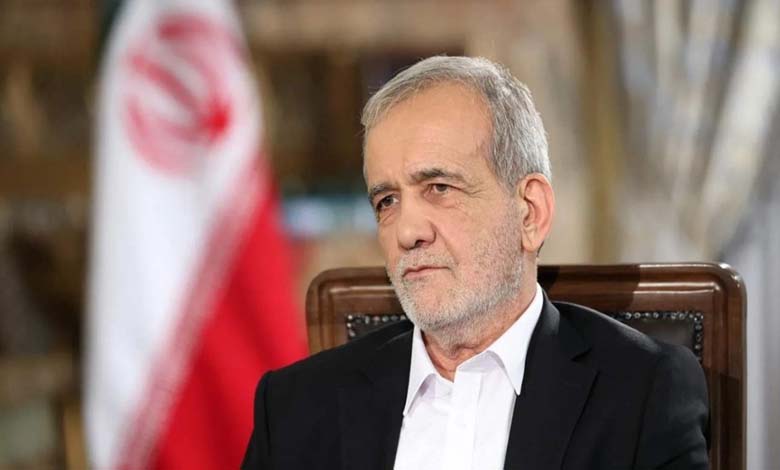
Iranian President Massoud Pezeshkian warned in an interview broadcast Tuesday on an American television channel that President-elect Donald Trump risks triggering a “war” against the Islamic Republic, asserting that Tehran does not “seek” to acquire nuclear weapons.
In an interview with NBC News conducted in Iran, the reformist president stated: “I hope the elected American president will lead to regional and global peace and will not contribute, on the contrary, to bloodshed or war.”
-
Trump’s Return Pushes European Powers to Demand Increased Pressure on Iran
-
Iran Keeps Door Open for Dialogue with Trump and Prepares for New Sanctions
This warning comes less than a week before the inauguration of the 47th president of the United States.
Washington and Tehran have had no diplomatic relations for 45 years. During his campaign, Trump repeatedly encouraged Israel to strike Iranian nuclear facilities.
Asked about the likelihood of Israel launching military strikes against Iran despite the U.S. agreement on Iranian nuclear sites, the Iranian president responded through a translator: “We will respond to any action. We are not afraid of war, but we do not seek it.”
-
Deal or Strike? Limited Options for Trump in Dealing with Iran
-
Why does Trump want to annex Greenland? The full story
Iranian officials held talks on Monday and Tuesday with representatives from Germany, the United Kingdom, and France in Geneva, at an undisclosed location. Both sides described the discussions as “frank and constructive.”
These talks took place ahead of Donald Trump’s return to the White House on January 20, after a first presidency marked by a “maximum pressure” policy against Iran.
Pezeshkian defended his country’s policy, stating: “Everything we have done so far has been peaceful. We are not seeking to build a nuclear weapon, but they accuse us of aiming to make an atomic bomb.”
-
January 13: Iranian-European Talks on the Nuclear File in Geneva
-
Western Maximum Pressure Campaign to Prevent Iran from Acquiring Nuclear Weapons
When asked about the possibility of engaging in “direct and open negotiations with President Trump,” the Iranian president expressed skepticism.
“The issue is not dialogue, but the commitments that arise from this dialogue,” he said, lamenting that “the other party has not fulfilled its promises or respected its commitments.”
The nuclear deal signed by Iran in 2015 with France, Germany, the United Kingdom, China, Russia, and the United States provided for international oversight of Iran’s nuclear program in exchange for easing international sanctions. This deal includes a mechanism allowing for the reimposition of sanctions.
-
“Iran Nuclear Deal”: Diplomatic Efforts to Contain Escalation
-
Iran and Russia: A ‘Fragile’ Partnership at Risk of the ‘Wedge of Discord’
After 10 years of implementation, the provisions enshrined by United Nations Security Council Resolution 2231 of 2015 are set to expire in October 2025.
Tensions over Iran’s nuclear program significantly escalated under Trump’s presidency, who unilaterally withdrew from the deal in 2018 and reimposed severe sanctions that damaged Iran’s economy. In response, Iran increased its nuclear activities and gradually abandoned its commitments under the deal.
-
“Iran’s Nuclear Program”: IAEA Condemnation and Tehran’s Response
-
Muslim Brotherhood: Scaling Back Activities with Trump’s Arrival to Avoid Terrorist Label
The Iranian president also denied that his country had plotted to assassinate the elected U.S. president, rejecting earlier accusations by Trump and the U.S. government.
In November, the U.S. Department of Justice charged an Iranian in connection with an alleged Iranian Revolutionary Guard Corps plot to assassinate Trump, a Republican. Law enforcement agencies successfully foiled the plot before any attack.
In the interview, Pezeshkian stated in response to a question about these accusations: “It never happened. We never tried to do so, and we never will.”
-
Iran Does Not Rule Out Communication with Trump to Preserve Its Interests
-
Iran Denies Involvement in Trump Assassination Attempt after U.S. Accusations
Trump, who won last year’s presidential elections and will take office next Monday, survived two assassination attempts during the campaign. Investigators found no evidence linking Iran to these attempts.
Iran has also previously denied accusations of interference in American affairs, including through cyber operations.
-
Wall Street Journal: Trump to Renew “Maximum Pressure” Campaign against Iran
-
Trump’s Rise Prompts Iran to Consider the Consequences of a Potential Attack on Israel
-
The Potential Return of Trump to Power: A Nightmare for Iran


